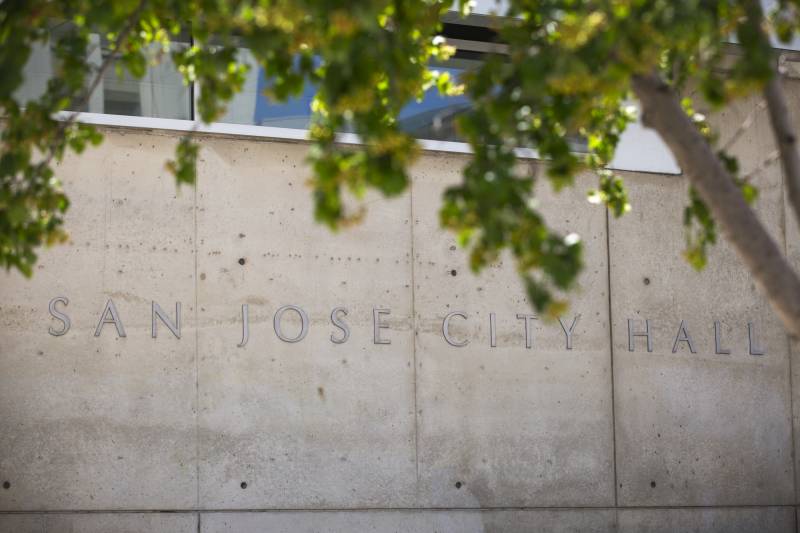The San José City Council on Tuesday gave its final approval to raises for thousands of municipal employees, finding trims in the city budget to pay for the wage increases.
The vote brought a close to a contentious bargaining process that nearly resulted in a historic strike by city workers last month. Council members acknowledged that the pay hikes for city employees could lead to growing budget shortfalls in the years ahead, but approved an agreement that avoids large cuts to city services in the current fiscal year.
“What we did here collectively as a council was push beyond our comfort zone,” said Councilmember David Cohen, who co-authored the budget agreement. “But it’s important, I believe, that our employees feel valued and are compensated as well as possible. We knew that whatever final agreement we came to, we would be dealing with budget cuts in the year ahead.”

